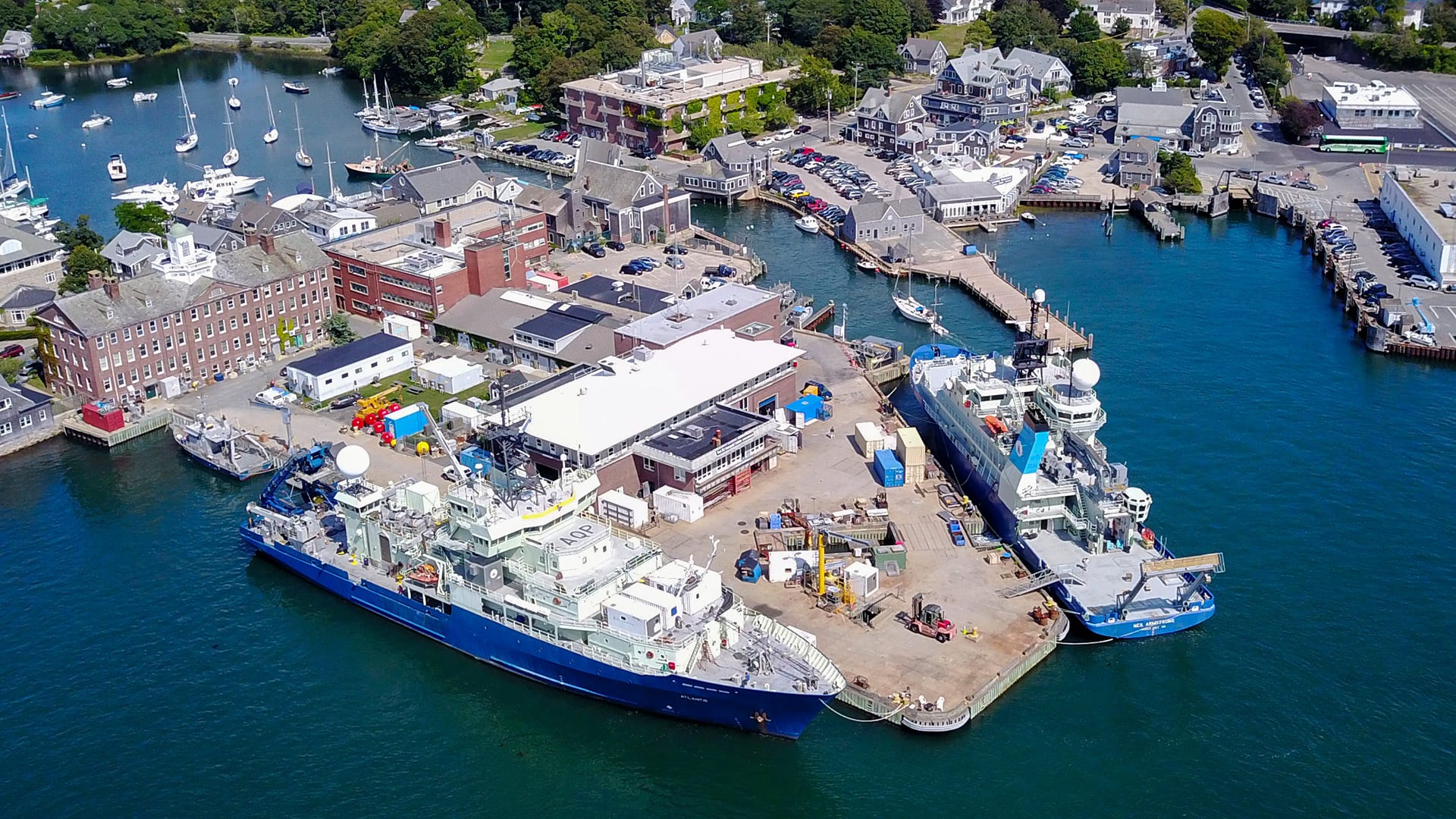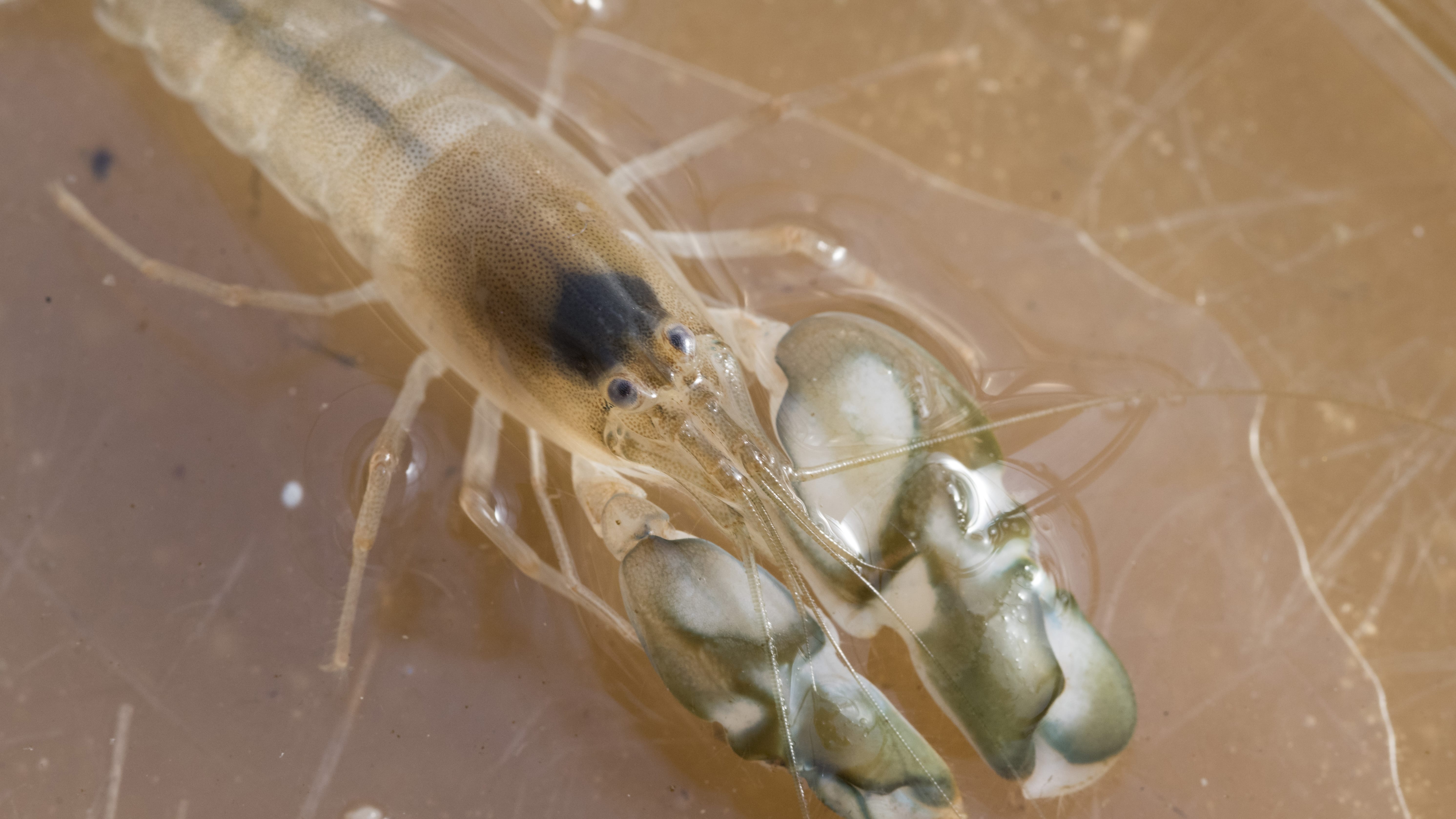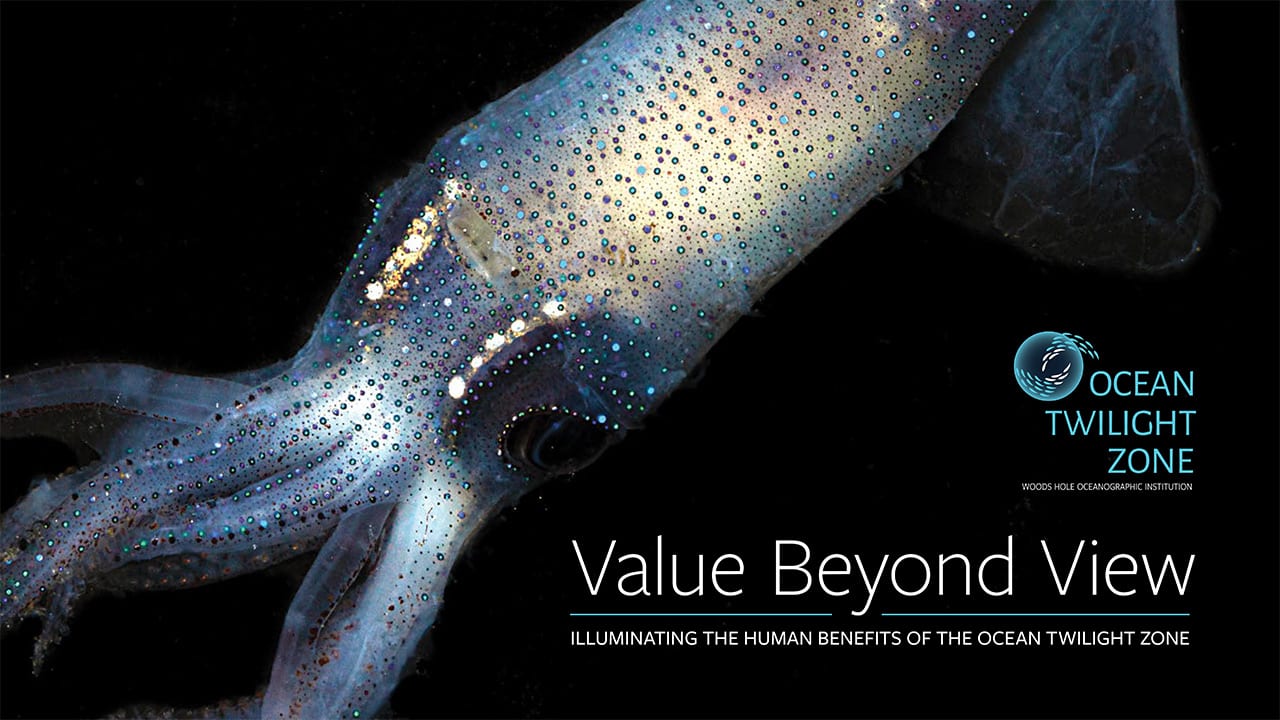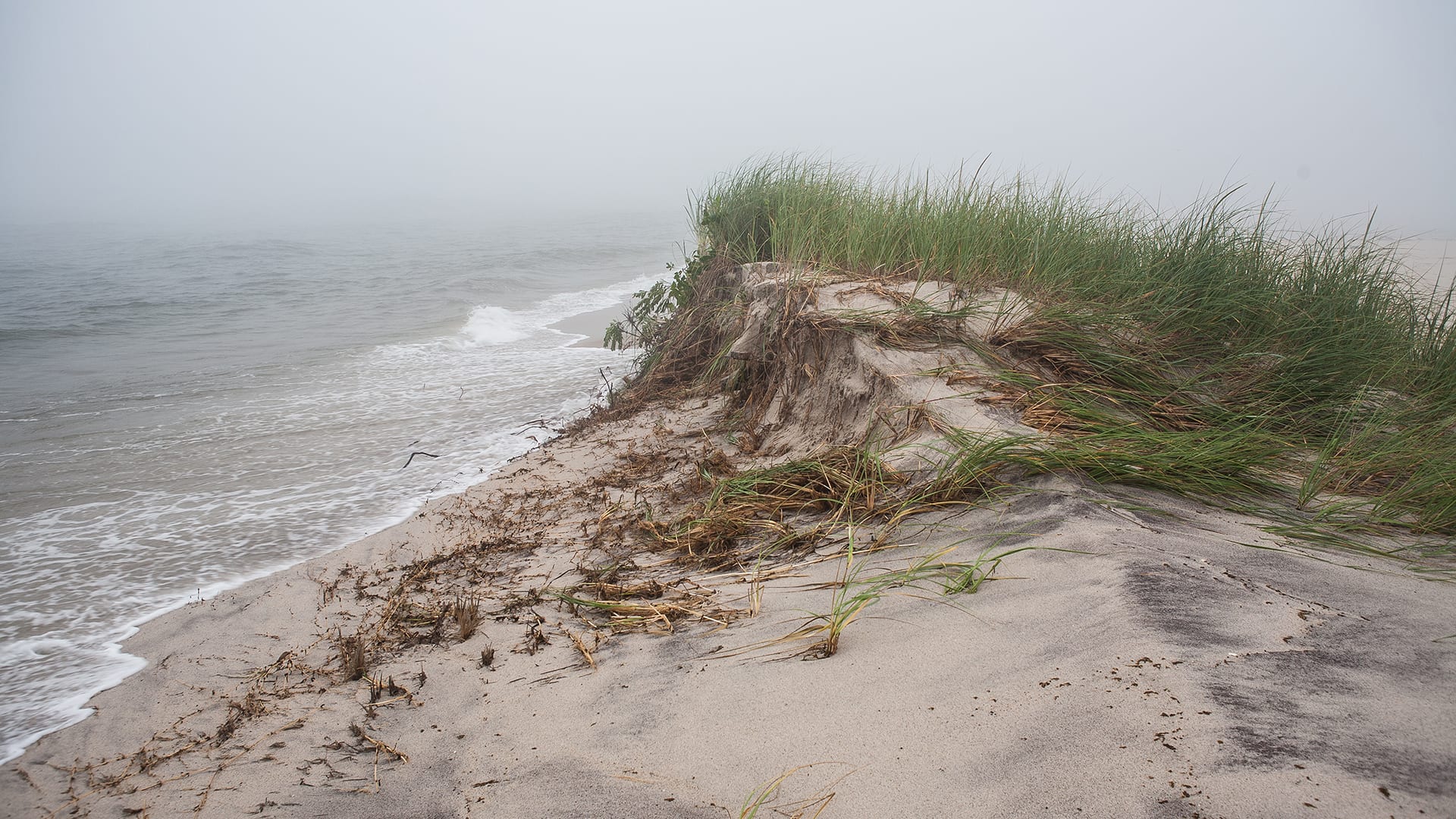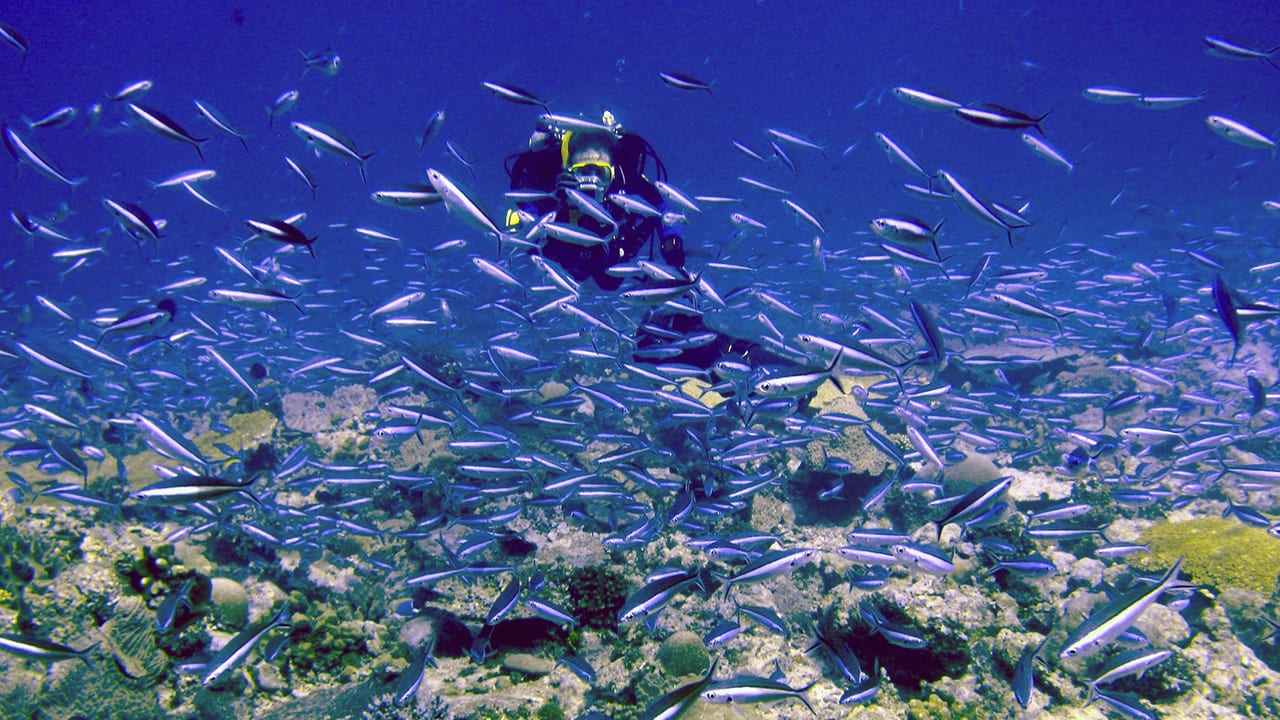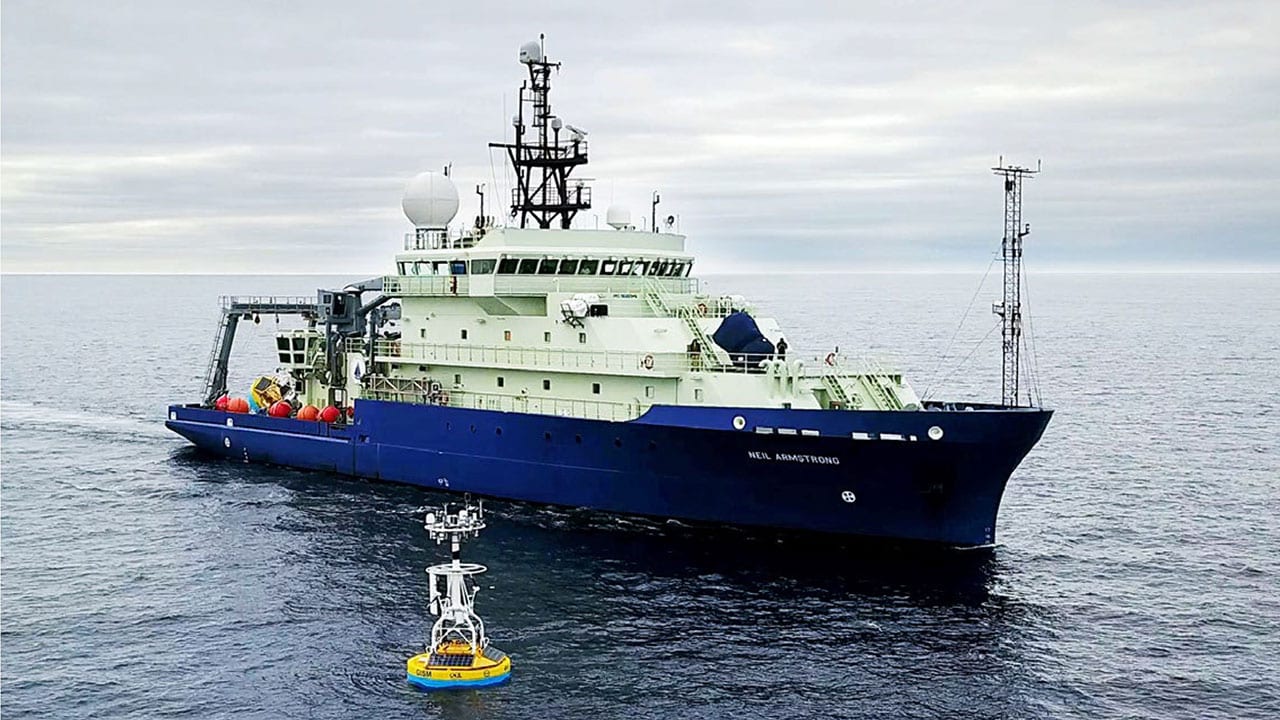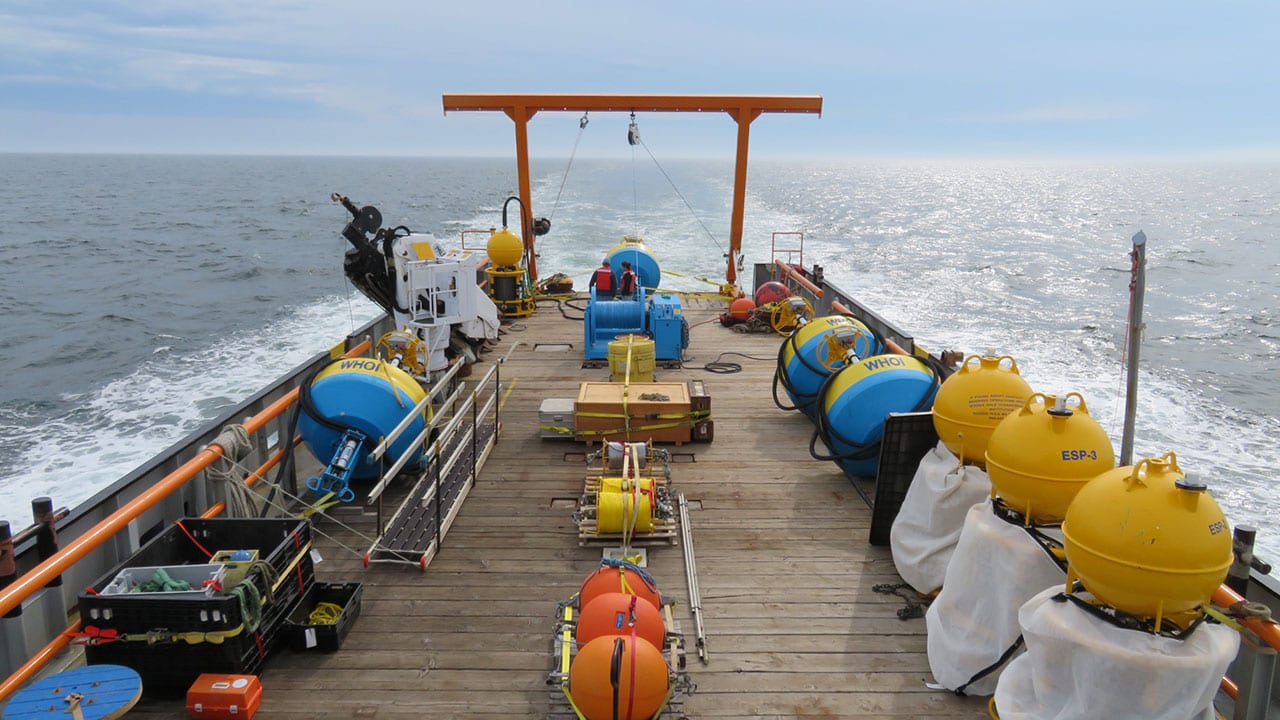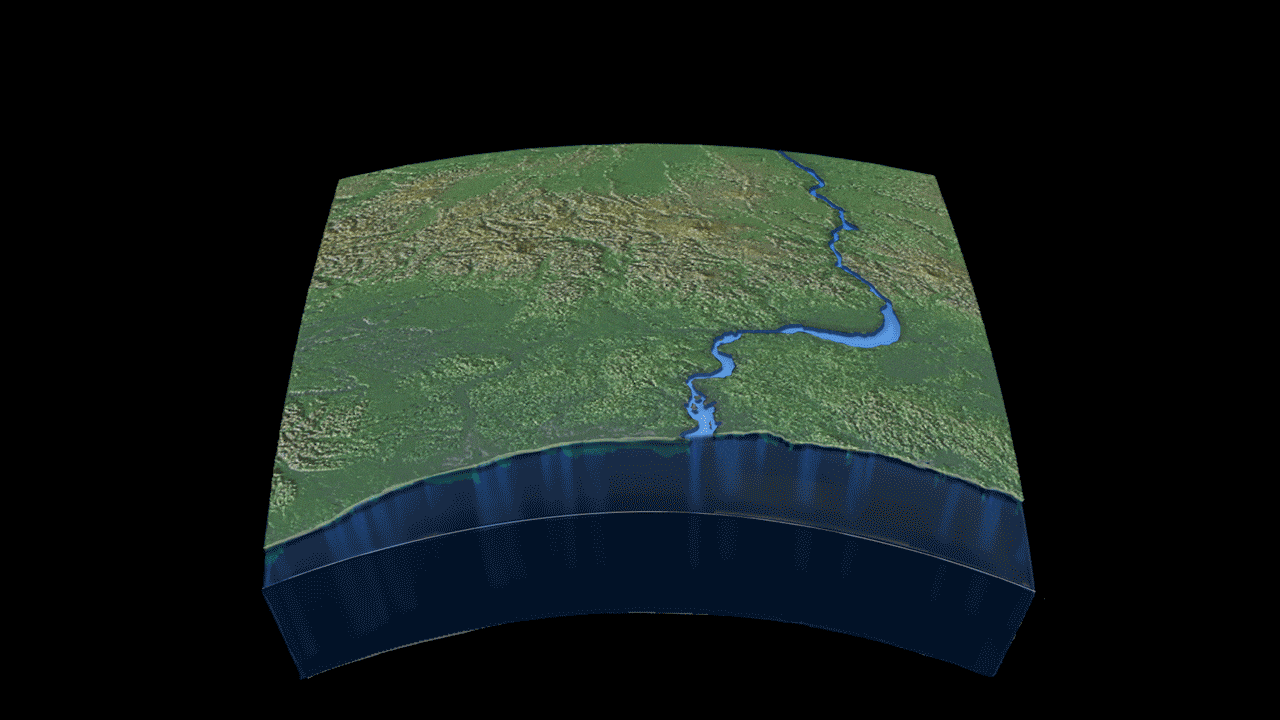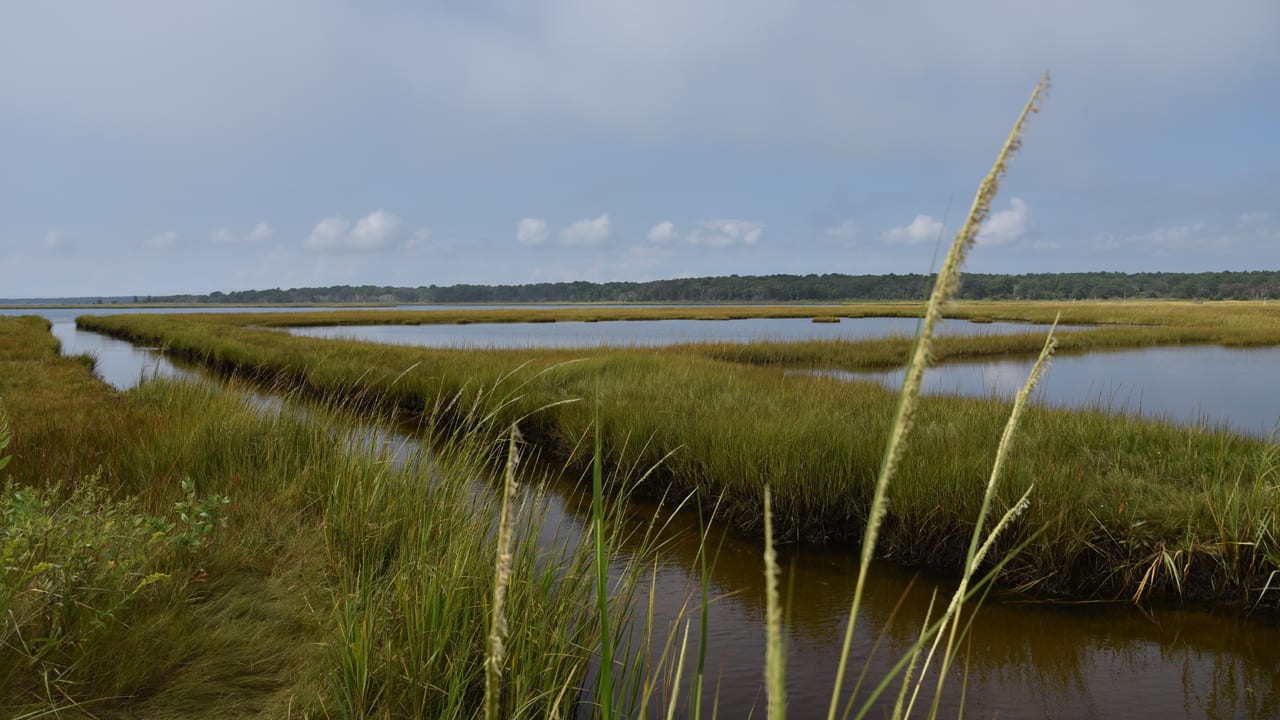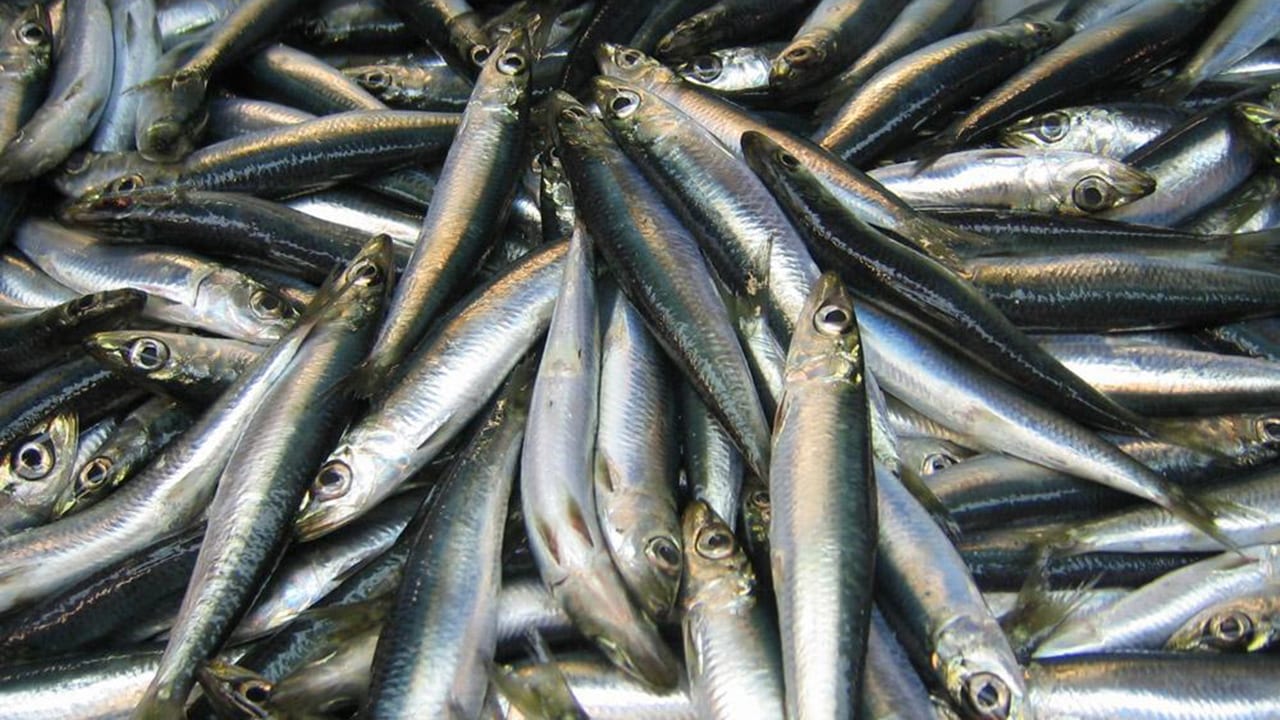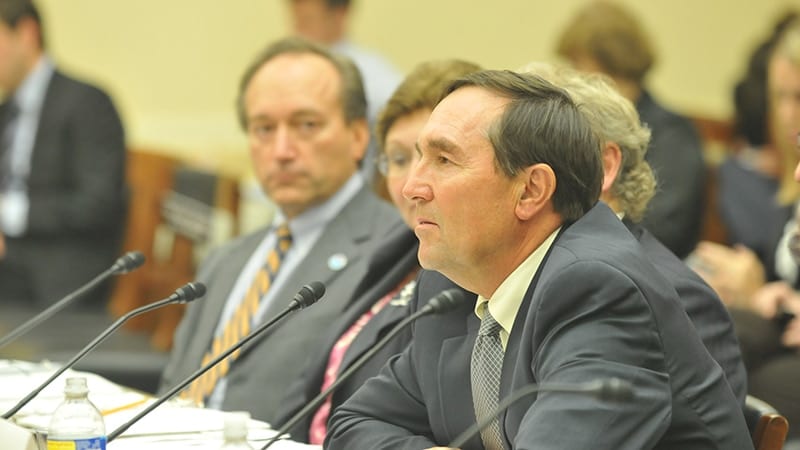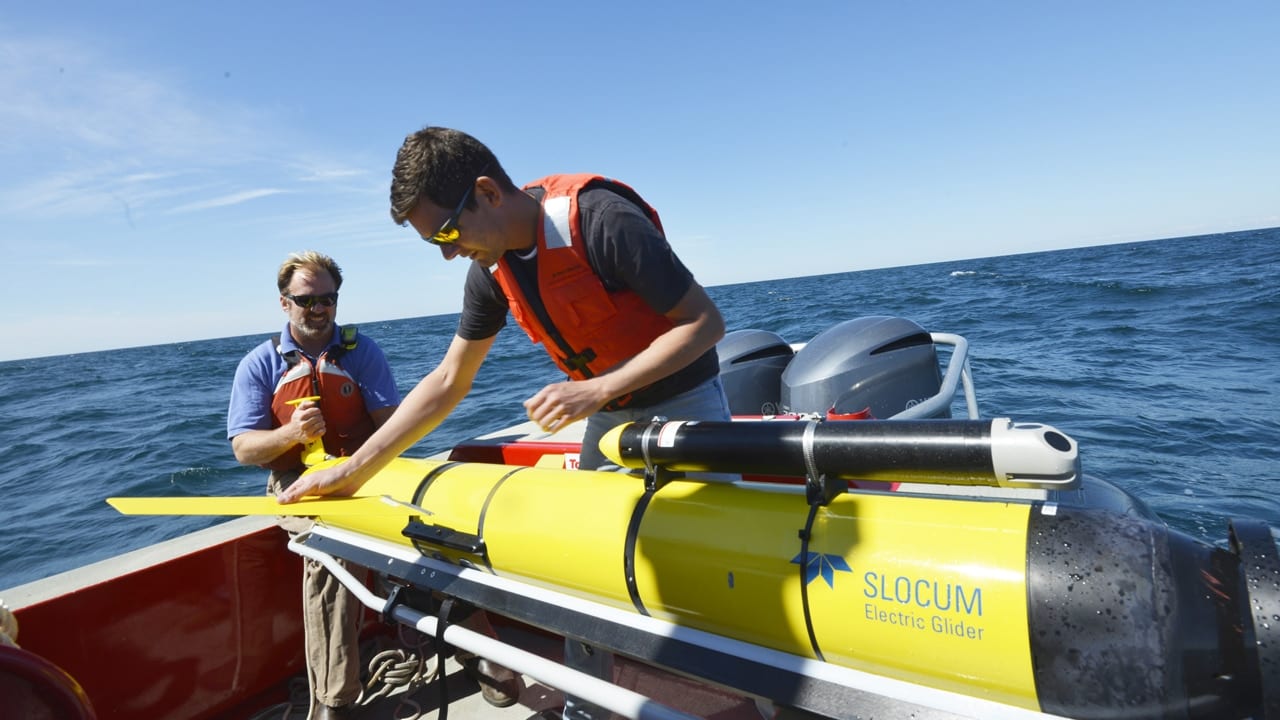News Releases
WHOI to Launch New Center for Ocean and Climate Research
Today WHOI announced the establishment of the Francis E. Fowler IV Center for Ocean and Climate to seek new knowledge and solutions at the intersection of oceanography and climate science. A generous gift from Francis E. Fowler, IV established the center and will enable it to immediately commence operations.
Read MoreWoods Hole Oceanographic Institution Elects New Trustees and Corporation Members
The Board of Trustees of Woods Hole Oceanographic Institution (WHOI) announced today the election of two new trustees and nine new corporation members. The new trustees are Dr. Cullen Buie,…
Read MoreWarming oceans are getting louder
One of the ocean’s loudest creatures will get even louder and more troublesome to humans and sea life as the ocean warms.
Read MoreReport reveals ‘unseen’ human benefits from ocean twilight zone
A new report from researchers at Woods Hole Oceanographic Institution (WHOI) reveals for the first time the unseen—and somewhat surprising—benefits that people receive from the ocean’s twilight zone. Also known as the “mesopelagic,” this is the ocean layer just beyond the sunlit surface.
Read MoreStudy Finds No Direct Link Between North Atlantic Ocean Currents, Sea Level Along New England Coast
A new study by the Woods Hole Oceanographic Institution (WHOI) clarifies what influence major currents in the North Atlantic have on sea level along the northeastern United States. The study, published June 13 in the journal Geophysical Research Letters, examined both the strength of the Atlantic Meridional Overturning Circulation (AMOC)—a conveyor belt of currents that move warmer waters north and cooler waters south in the Atlantic—and historical records of sea level in coastal New England.
Read MoreWoods Hole Oceanographic Institution Receives $5 Million to Accelerate the Advancement of Knowledge about the Ocean
The Deerbrook Charitable Trust has awarded $5 million to Woods Hole Oceanographic Institution (WHOI) to establish the Deerbrook Ocean Science Acceleration Fund (DOSA Fund). This gift launches the new WHOI…
Read MoreNSF Awards Contract to Group Led by WHOI to Continue Operation of Ocean Observatories Initiative
The National Science Foundation (NSF) announced that it has awarded a coalition of academic and oceanographic research organizations a five-year, $220 million contract to operate and maintain the Ocean Observatories…
Read MoreWoods Hole Center for Oceans and Human Health Receives Five-year Funding from NSF and NIEHS
The National Science Foundation (NSF) and National Institute of Environmental Health Sciences (NIEHS), one of the National Institutes of Health, have announced that the Woods Hole Oceanographic Institution (WHOI) will…
Read MoreStudy Finds Link Between River Outflow and Coastal Sea Level
Sea levels in coastal areas can be affected by a number of factors: tides, winds, waves, and even barometric pressure all play a role in the ebb and flow of the ocean. For the first time, however, a new study led by the Woods Hole Oceanographic Institution (WHOI) has shown that river outflow could play a role in sea level change as well.
Read MoreWoods Hole Sea Grant Awards Funds to Six New Coastal Projects
The Woods Hole Sea Grant program has awarded researchers from WHOI and other Massachusetts academic organizations funds for new projects, representing a total anticipated investment of nearly $1.5 million.
Read MoreWHOI Led Research Team Receives Funding to Develop Ocean Temperature Forecast System
The Woods Hole Oceanographic Institution (WHOI) was awarded a competive federal grant from the National Oceanic and Atmospheric Administration (NOAA) to develop a forecast system that will predict seasonal and…
Read MoreDon Anderson Selected for Prestigious Ketchum Award for Coastal Research
Senior Scientist Don Anderson will receive WHOI’s prestigious 2017 Bostwick H. Ketchum Award, which honors an internationally recognized scientist who demonstrates an innovative approach to coastal research, leadership in the scientific community, and who forges a link between coastal research and societal issues.
Read MoreFree-swimming Ocean Gliders Help Scientists Understand Storm Intensity
A regional team from WHOI, Rutgers University, the University of Maine, the University of Maryland, and the Gulf of Maine Research Institute mobilized Friday in advance of Hurricane (now Tropical Storm) Hermine’s arrival in the Northeast to gather data from new ocean instruments that will help better predict the intensity and evolution of future tropical storms along the US East Coast
Read MoreCoral Reefs Threatened by a Deadly Combination of Changing Ocean Conditions
As the ocean ‘s pH decreases and acidifies, coral reefs are more likely to begin dissolving and “drown”. A new study shows exposing corals to added nutrients increases their erosion and dissolution rate tenfold.
Read MoreRadioactive Ocean Website Garners Public Support
Woods Hole Oceanographic Institution (WHOI) has teamed up with the public to build the most comprehensive and up-to-date dataset on marine radiation levels in the aftermath of the 2011 Fukushima…
Read MoreRadioactive Ocean Website a Success
With concern among the public over the plume of radioactive ocean water from Fukushima arriving on the West Coast of North America and no U.S. government or international plan to…
Read MoreWoods Hole Oceanographic Institution Scientist Receives Grant from the Paul G. Allen Family Foundation
The Paul G. Allen Family Foundation has awarded Woods Hole Oceanographic Institution (WHOI) assistant scientist Anna Michel $200,000 to develop a sensor that will enable scientists to analyze how methane…
Read MoreWHOI Scientists Receive $11.6 Million to Measure Changes in Ocean Circulation
Ocean currents, in concert with the atmosphere, play a critical role in regulating Earth’s climate. Yet the complexities of how water is moved around the globe and how the strength…
Read MoreStudy explores complex physical oceanography in East China Sea
Just days before a team of researchers from Woods Hole Oceanographic Institution (WHOI) and National Taiwan University set out to conduct fieldwork in the East China Sea, Typhoon Morakot—one of…
Read MoreAcidifying oceans could spell trouble for squid
Acidifying oceans could dramatically impact the world’s squid species, according to a new study led by Woods Hole Oceanographic Institution (WHOI) researchers and just published online in the journal PLOS…
Read MoreWHOI to Host Public Event on Fukushima and the Ocean
Japan’s “triple disaster,” as it has become known, began on March 11, 2011, with a magnitude 9.0 earthquake—the fourth largest ever recorded. Following the quake, a 40 to 50-foot tsunami…
Read MoreNew Study Reveals How Sensitive U.S. East Coast Regions May Be to Ocean Acidification
A continental-scale chemical survey in the waters of the eastern U.S. and Gulf of Mexico is helping researchers determine how distinct bodies of water will resist changes in acidity. The…
Read More

